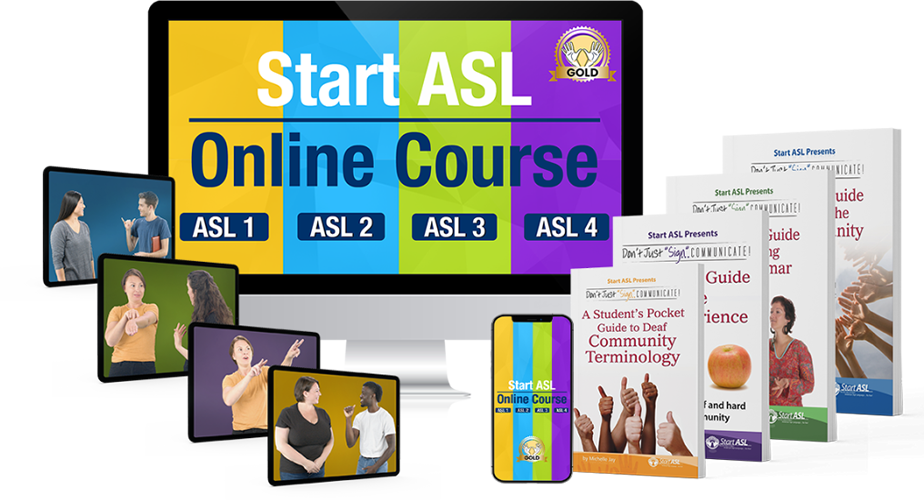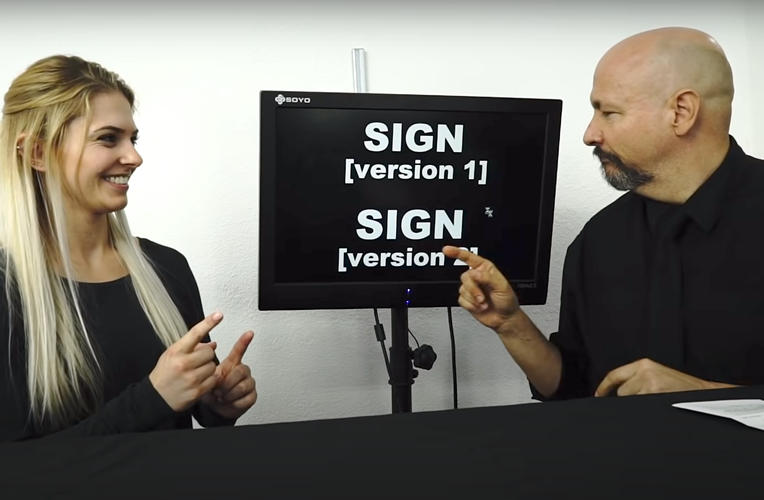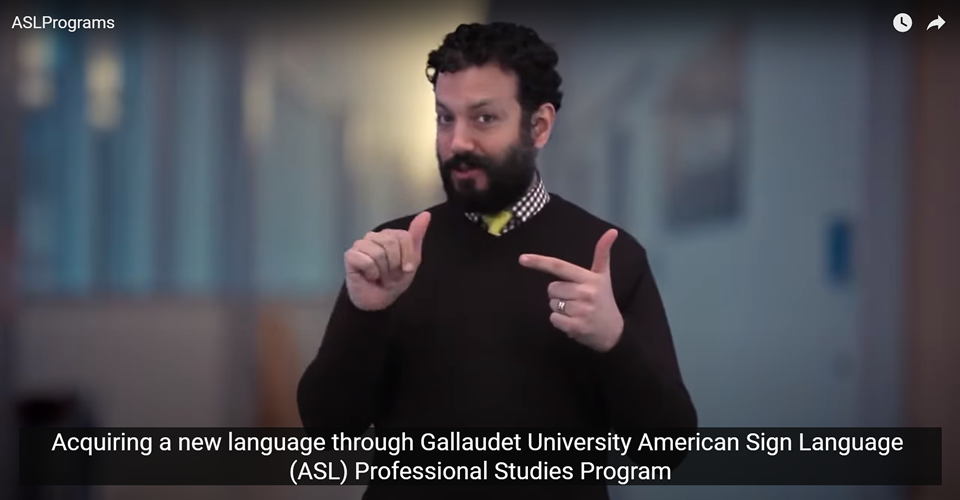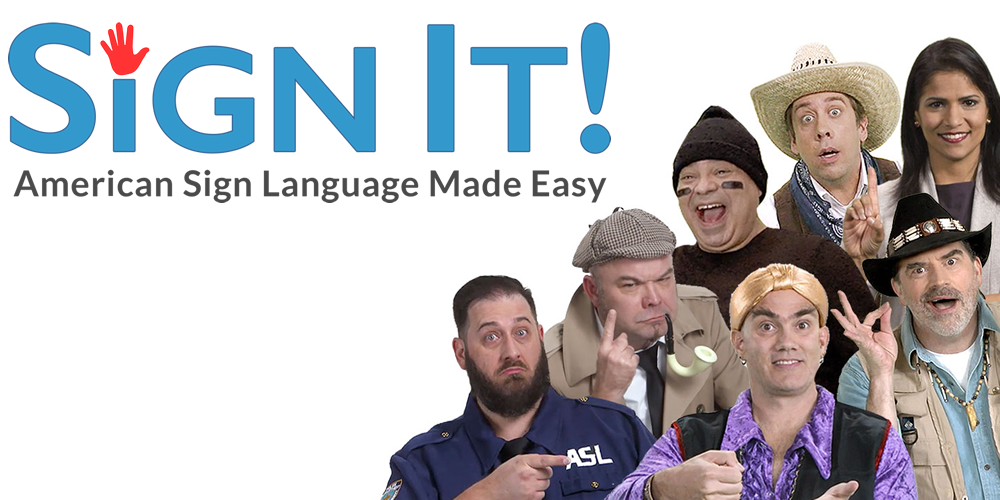Have you ever thought about learning a new language? What about American Sign Language (ASL)? It’s not just a language, it’s a whole new perspective and a way to communicate without uttering a single word. Whether you’re looking to break barriers, open up to new communities, or simply learn something unique, ASL is a fantastic road to go down. But we know, finding the right course online to Learn American Sign Language can be a maze. So, get comfortable as we dive into the world of online ASL courses together, and let me guide you to some of the very best options available.
Our Picks to Learn American Sign Language (ASL):
Start ASL – Best Overall

Features
- Comprehensive four-level course structure
- Options for individuals, homeschoolers, and schools/organizations
- Aligned with the California World Language Standards and the ACTFL (American Council on the Teaching of Foreign Languages).
- Certificate of Completion for each level
- Offline option available
- Social events for signing practice and connection
For over 15 years, Start ASL has been at the forefront of American Sign Language education, fostering a mission to connect the Deaf and hearing communities. Their ASL courses are crafted by a team of highly skilled professionals, featuring native Deaf experts and certified interpreters and instructors.
Start ASL offers a diverse array of ASL learning resources, catering to various audiences. Whether you’re a Student, Teacher, or Homeschooler, they have tailored courses to suit your needs. They also provide an individualized Tutoring Program for those seeking one-on-one instruction.
Pricing
- Silver Plan: $47/month, $247/semester, $447/year
- Gold Plan: $97/month, $497/semester, $997/year
- Offline Course: $197/student (Licensing options available for 5 or more students)
- 30 day money back guarantee
Pros
Cons
ASL University – Best Value

Features
- 4 Progressive Online Courses with 15 Lessons each
- Self-guided video lessons
- Communication-focused curriculum
- Registered course offers continuing education units
- Registered course includes lesson quizzes, unit tests, a research paper, a culture and terminology test, an instructor-graded video project and an in-person proctored final exam
ASLU began with a noble mission: to provide free ASL resources to rural families who lacked access to in-person classes. Today, it’s evolved into a treasure trove of knowledge, catering not only to individuals but also to instructors, students, and families looking to supplement their ASL learning.
The course focuses on teaching students sign concepts prioritized based on frequency of real-world usage rather than grouping them by topic. This allows students the ability to quickly start having meaningful conversations.
Alongside these concepts, students also gain proficiency in fingerspelling, numbers, cultural and historical aspects, terminology, and interconnected information. Interconnected information includes understanding how signs relate to one another and the specific contexts in which certain signs are appropriate.
Pricing
- Free but can be taken as an actual course for $483
Pros
Cons
Gallaudet University – Best for School Credit

Features
- Offers both online ASL courses (8 weeks or 15 weeks ) as well as in-person Summer courses.
- Self-paced classes with structured deadlines
- Virtual Language Sessions with Instructor or Teaching Assistants
- Optional weekly events hosted via Zoom
Gallaudet’s ASL Connect program has paid courses designed for those seeking in-depth knowledge and structured learning experiences. The inclusion of live virtual sessions with ASL instructors adds a priceless dimension to the learning experience.
Gallaudet University’s offerings are particularly valuable for those seeking college credit or aiming for conversational fluency in ASL. The quality of instruction is undeniably top-notch, and the resources are rich. Ultimately, it’s up to you to decide which path best suits your ASL learning journey. If you’re passionate about mastering ASL, Gallaudet University is your golden ticket to a more inclusive world.
Pricing
- Cost of $990/course with an additional $40 application fee.
Pros
Cons
ASL Meredith – Best Introductory/Beginner Course

Features
- 2 Beginner Modules with 5 lessons each and a module review and quiz.
- Self-paced online course with video lessons, culture and grammar readings, comprehension activities, practice exercises
ASL Meredith, created by Meredith, a certified ASL instructor with a Master’s degree in Teaching ASL as a Foreign Language and a strong foundation in linguistics. The website is an invaluable information hub, helping you find answers to your questions and providing essential topics on ASL.
ASL Meredith’s core offering is an online, self-paced course meticulously designed for complete ASL beginners. The course, consisting of six modules, equips learners with the essential elements of ASL, covering grammar, vocabulary, and conversation.
Pricing
- $199
Pros
Cons
Sign It! ASL – Most Engaging

Features
- 20 Lessons (of about an hour) available covering a different topic
- Content created by educators and entertainers from the ASL community
- Self-paced; no expiration
- Each lessons comes with quizzes and an exam with scoring and progress tracking
Sign It ASL is an exceptional online American Sign Language course designed for self-paced learning, featuring instruction from renowned educators and ASL entertainers. The comprehensive curriculum consists of 20 engaging lessons that cover conversational ASL, including vocabulary, sentence construction, grammar, syntax, and an in-depth exploration of Deaf culture.
Sign It ASL is an ideal choice for homeschoolers, meticulously crafted for independent learning by teenagers and adults. This adaptable sign language curriculum has been successfully employed at middle school, high school, and college levels.
Pricing
- $159.99 for all 20 Lessons
- $49.99 for Bundles (5 Lessons)
- $349.99 for Group Access
Pros
Cons
ASLDeafined – Best for Parents

Features
- Over 300 themed Lessons with retention activities and progress chart
- Content created by a team of Deaf staff
- Multiple quizzes for each lessons
- App Available for IPhone and Android
- 17,000 + Video dictionary with synonyms & variations
- Customized vocabulary bank
ASLDeafined offers subscription-based American Sign Language (ASL) video lessons, catering to learners of all ages. The platform is thoughtfully crafted to provide valuable instruction to Deaf individuals, parents of Deaf children, and the wider community.
We found that the material is best suited for parents teaching their children distinct signs or concepts rather than fluency in communication.
Pricing
- $36/Year-Personal
- $12/Year Educational
Pros
Cons
Brief History of American Sign Language (ASL)
American Sign Language (ASL) has a rich history rooted in the early 19th century. It traces its origins back to a French Sign Language instructor named Thomas Hopkins Gallaudet. Gallaudet encountered a young Deaf girl named Alice Cogswell and was inspired to educate her. He traveled to Europe to learn about Deaf education, where he met Laurent Clerc, a Deaf sign language instructor.
Together, they established the American School for the Deaf in Connecticut in 1817. This became the breeding ground for ASL, merging French Sign Language with local sign languages and home signs used by Deaf people and their families. ASL evolved naturally among the Deaf community and is today a fully-fledged, sophisticated language that allows for complex expression and discussion. Despite its historical and cultural significance, it was only officially recognized as a language in the 1960s.
Benefits of Learning American Sign Language (ASL)
Lifelong learning, the continuous pursuit of knowledge for personal or professional reasons, is an admirable endeavor. Choosing to learn American Sign Language (ASL) as a part of this journey is particularly salient for several reasons.
First, ASL offers a unique learning experience, challenging the brain to communicate non-verbally, which can enhance visual-spatial skills, memory, and attention to detail. As a visual language, ASL can be used in noisy environments where spoken languages may be difficult to hear, or in situations where vocal communication isn’t possible, adding a versatile tool to your communication arsenal.
Additionally, the study of ASL offers deep insight into a vibrant culture often misunderstood or overlooked, increasing cultural sensitivity and empathy. Finally, the practical benefits of learning ASL extend into numerous careers, including education, healthcare, and social services, opening avenues for professional development and growth.
Embracing ASL as part of lifelong learning promotes not just personal enrichment, but also social inclusiveness, making it a truly worthwhile pursuit.
You might also like:
- 8 Powerful Benefits of MOOCs for Lifelong Learning
- Learning Bucket List: 100+ Inspiring Ideas to Enrich Your Life







